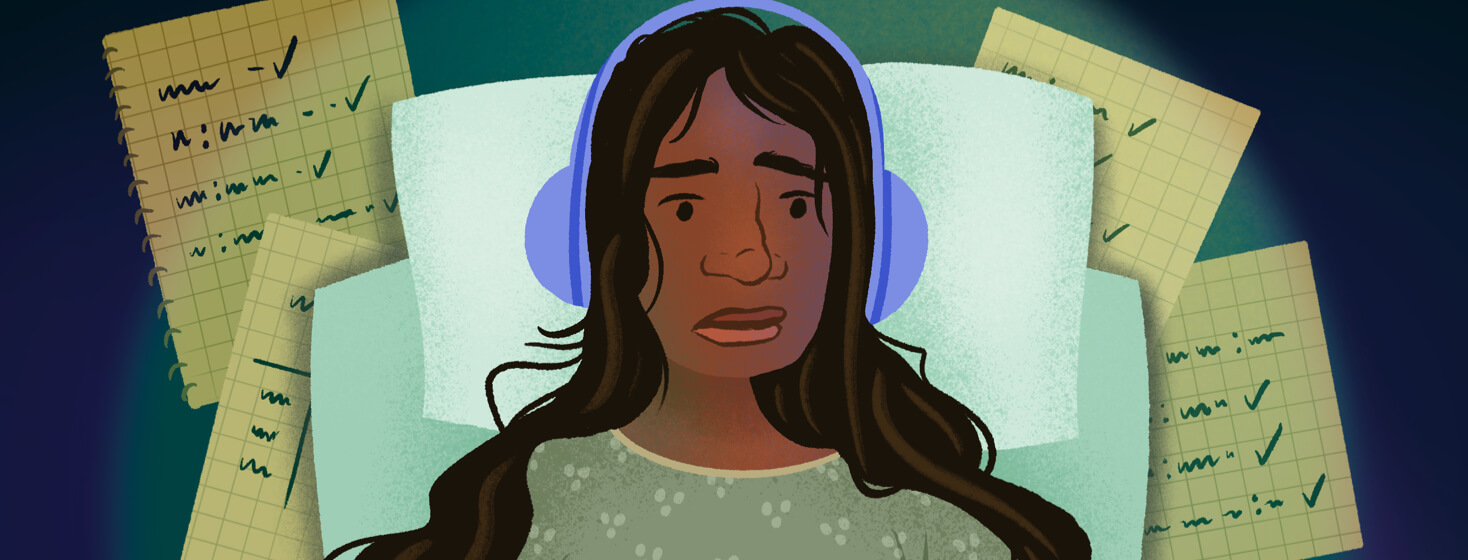How I Was Finally Diagnosed With Absence Seizures
Let me tell you about the unusual way I found out I had seizures...
The notebook
At 16, my best friend and I had several classes together. One day, she handed me a notebook with the days and times when I acted strangely during our conversations. I clearly remember her saying, "I think you should talk to someone."
That day I went home and showed my mom the notebook. She was stunned looking at the notebook. About a week later I went to see my first neurologist.
My first EEG and MRI
Next came my testing to see what could be happening, this included my first sleep deprivation EEG and my first MRI. During the testing, I was laying in this long tube with ear protection on and reassuring myself that this was all a very dramatic response to my friend’s notebook.
Thoughts went through me evaluating what her book said and what I knew about myself. Things like, "I am a smart girl, although I can be forgetful when I’m too stressed. I have friends that space out, the difference is mine were recorded and theirs are not."
Diagnosis of absence seizures
I was with my mom as we were being told the findings of the testing in the neurologist’s office. As it turns out getting tested was what I NEEDED.
The neurologist stated that I was having around 100 seizures a day based on my results. Thankfully, the MRI showed that my brain was fine, with no signs of lesions or any abnormalities.
All I thought was, "How could I have seizures?!? I’ve never dropped to the ground and shook." Well, guess what we found out... There is more than just a TV-showtype of seizure. Seriously, we had no idea.
So many questions about having epilepsy
From there I remember the questions just flowing from my mom. I was stunned and confused and looking at a paper with a list of things that I was not supposed to ever do – by myself and in general. I remember thinking about how I had done these things my whole life.
Next big thought, "Is my life now changing forever?" The answer is YES!
What are absence seizures?
I was diagnosed with absence seizures."What does that mean?" Excellent question!
This is what John Hopkins Medicine has to say: "An absence seizure causes you to blank out or stare into space for a few seconds. They can also be called petit mal seizures. Absence seizures are most common in children and typically don’t cause any long-term problems. These types of seizures are often set off by a period of hyperventilation."1
Diagnosing absence seizures can be hard
"Why could my friend tell but my parents couldn’t?" Another excellent question!
This question has made my mom feel horrible for years. However, the reason is simple and understandable. The symptoms are the same as a child without a seizure disorder.
Let’s hear from John Hopkins Medicine again on this: "The easiest way to spot an absence seizure is to look for a blank stare that lasts for a few seconds. People in the midst of having an absence seizure don’t speak, listen, or appear to understand. An absence seizure doesn’t typically cause you to fall down. You could be in the middle of making dinner, walking across the room, or typing an e-mail when you have a seizure. Then suddenly you snap out of it and continue as you were before the seizure."1
This type of epilepsy can easily go unnoticed
Time to compare three basic symptoms of absence seizures and normal child development/behaviors from newborn to age 16.
- The blank stare that lasts for a couple of seconds
- Not speaking
- Not listening
This list sounds familiar. Surely, you can think of a child that fits this description. Understandably, my parents thought they had a slightly defiant and occasionally flighty kid. Who could blame them? I certainly don't!
However, my friend had no reason to think I was being defiant. That’s not even something that would make sense. She was a great friend who probably saved my life.
Just the beginning of my epilepsy journey
Now, I am a 33-year-old woman with idiopathic generalized epilepsy (which I can explain more on later). My journey has been long, interesting, enlightening, and has helped shape me as a person. I am incredibly honored to be a part of your life and epilepsy journey.

Join the conversation